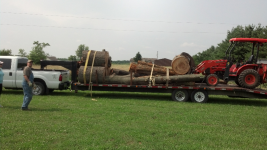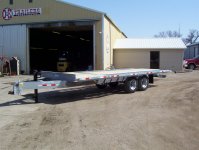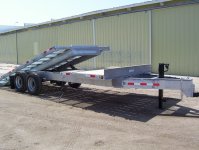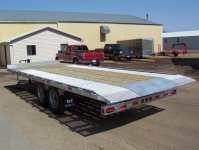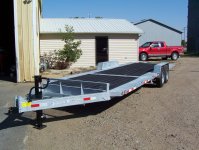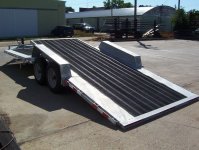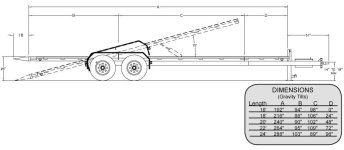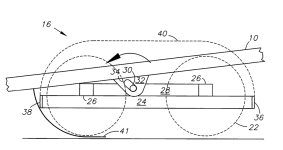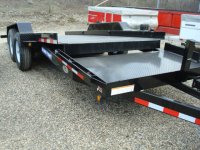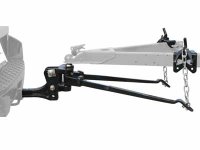Rusty, have you used both? The reason I ask is because my current trailer is a dovetail with fold up ramps and I hate it. I know it isn't good to hang the rotary cutter off the end but I would love to be able to let it overhang a few feet, whereas now I can't, because the ramps are always in the way. I haven't used a flat deck trailer but I can't see why it would be a big deal. I would really only use it for equipment, and not a car or anything that needs a shallow angle of approach. I feel like I would get more usable space with a flat deck.
The other use I have for the trailer, is to lay my Woodmizer sawmill on it for when I want to do a mobile job. The mill is not a trailerable model (LT 15) but is easily setup on a trailer. I've done this on my current setup but it overhangs as well.
View attachment 327354
I also do not like how little clearance I have on the back of the tractor, more than one occasion I have scraped/dragged the bottom of the trailer on a customer's driveway, I have to be really careful of that.
I'm browsing online and found this PJ trailer...
PJ Trailers - 8" I-Beam Deckover (F8)
I would probably like the 26' model, it comes with two 7,000lb axles and has a 14k lb weight rating. The trailer weighs 4k lbs (actually 4300 but let's say 4k for easy math

) I'm assuming this means I can safely and legally carry 10k lbs?
If I were to upgrade to the two 8k lb axles, could I then legally carry 12k lbs on the trailer?
What would be better, two 8k lb axles, or three 7 lb axles? It seems like 3 axles would weigh more, and I couldn't take advantage of the extra weight rating, but it may ride or carry the load nicer with 3 axles? What are the advantages and disadvantages of 2 or 3 axles?
